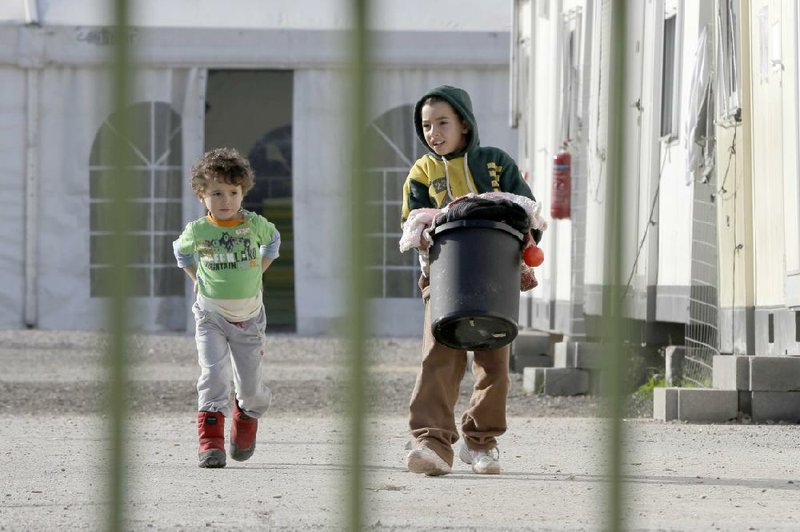ATHENS, Greece -- The European Union pledged on Monday to spend about $88 million to house migrants in Greece even as it seeks tougher procedures for asylum seekers traveling to the continent.
Kristalina Georgieva, the EU commissioner for budget and human resources, signed an agreement for a rent subsidy program for as many as 20,000 people next year.
Thousands of stranded migrants are being housed in old venues from the 2004 Olympics, at camps on Greek islands, or in tents pitched in city squares and parks in Athens.
"The [$88 million] is for the year 2016. ... After that it would be assessed. It could be expanded," Georgieva said. "Families could stay at an accommodation for two months, so the number involved over the year would be quite a lot higher than 20,000."
Nearly 800,000 migrants have crossed through Greece this year, hoping to travel to northern Europe. But Macedonia and other Balkan countries have toughened their border rules, restricting crossings to those from war-torn nations such as Syria, Iraq and Afghanistan.
Under the Greek housing plan, assisted by the United Nations refugee agency, migrants will receive hotel vouchers or checks to live in vacant apartments.
The program will significantly increase Greece's capacity to shelter migrants, according to an EU official who was not authorized to talk to the media and spoke on condition of anonymity.
EU authorities have promised to overhaul the bloc's border protection agency, speed up and coordinate deportations, and process more asylum claims in arrival countries such as Greece and Italy.
Greece's leftist government closed migrant detention centers around the country earlier this year but said Monday that some detention is needed to make deportation procedures work.
"Detention and return is a form of violence that saddens me," said Yiannis Mouzalas, a Greek migration minister. "But a government is obliged to abide by what is legally necessary. ... If a bottleneck stays open, that bottle will smash."
A Section on 12/15/2015


